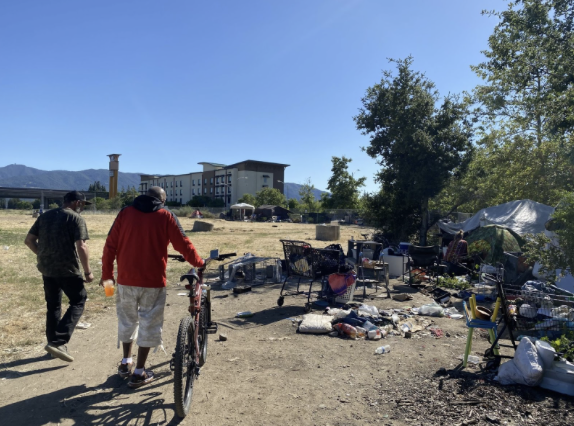“I’d rather be safe than sorry,” the San Jose City Council seems to be saying with their tentative agreement on police officers’ wage increase. Despite the $35.6 million dollar shortage this fiscal year, which is expected to increase to $52.9 million in 2026 and 2027, the San Jose City Council and the San Jose Police Officers’ Association (SJPOA) have reached a unanimous agreement: for the next three years, the officers will receive a 7%, 5%, and finally 3% raise, respectively.

After a report by financial company SmartAsset that declared San Jose the safest out of the largest fifty cities in the United States, Mayor Matt Mahan claimed that “safety is built on trust” in San Jose served as the primary reason that San Jose was ranked as the safest big city in the country. Mayan states this reason as the primary cause of the wage increase: “And it’s why we came to a fair agreement on a contract that keeps our officers on the streets and our residents safe. I’m grateful to the patient, civic-minded negotiators from the City and POA who made this success possible.”
Although they were characterized as “patient” and “civic-minded,” the SJPOA did take some actions that highlight their sharp criticism. The union heavily criticized City Manager Jennifer Maguire for making “top-down cuts to overtime pay,” calling it “sabotage and retaliation” against investigations, even though she was making necessary cuts due to budget constraints. Prioritization of funds is significant when limited resources are low, guaranteeing benefits for those who need it the most. Moreover, some sectors of our city don’t even receive basic funding: although San Jose may be the safest city, it is also the city that holds the fourth highest homeless population in the country. It’s also worth noting that the majority of police officers received anywhere from high five figures to six figure wages even during this time.
In addition to reprimanding others, Steven Slack, the president of the police union, claims, “It’s hard for police officers to take the current budget situation seriously when millions of taxpayer dollars are wasted. Enough with this wasteful spending and get focused on keeping San Jose safer.” Although it may sound like Slack is merely attempting to fix this monetary situation, he claims that the millions of taxpayer dollars are wasted on “things like new age consultants teaching city workers how to apologize or to train city workers on how to create a word document.” His snide wording of the “waste” of taxpayer dollars, according to some, reveals his lack of knowledge on the importance of certain allocations of funds. Likewise, the things he claims taxpayer money were wasted on, some attest, don’t address any of the current issues in San Jose, such as the exorbitant and growing poverty rate.
In addition, although the SJPOA cited 206 separations since January 2021, making it a crucial issue to give incentives for new personnel, the city records show that there were only 165. Moreover, of those 165, a whopping 52% were retirements, in addition to 3 deaths, 11 terminations, 2 civilian transfers, and 3 resignations before termination. Although it’s not untrue that due to these reasons there has been a shortage of police staff, it also proves that a wage increase may not affect the number of resignations.
After months of debate, the council reached a tentative agreement in September. They unanimously approved and essentially passed the contract on October 1, putting the 39-month negotiations into action and further draining the city’s budget, preventing the funding of welfare programs that could help the marginalized in our community.
Slack thanked the City Council once negotiations were initially over: “Balancing the fiscal realities of San José with keeping our residents and officers safe was a difficult goal. We are pleased that the City and the SJPOA rose to the occasion and worked collaboratively to produce a fair and prudent Tentative Agreement that will make for a safer San José.”

Obviously, the safety of San Jose’s residents should not be compromised. But we must ask ourselves if the beneficiaries of the limited budget the city struggles to work with should be the police officers, the majority of whom make six figures in a city that is clearing out homeless encampments despite having such a large homeless population. Take, for instance, Grim, a homeless man who has been living on the streets of San Jose since he was 9, and has found little support in social services. For homeless populations, brushes with law enforcement are seldom positive, and often only add to their hardships — something that’s especially true now as basic actions, such as sleeping in public, that these people take just to survive have become criminalized in the last few years.
In seeking to sanction security, we may unfortunately find out the hard way whether we can afford this safety—and whether this safety can truly be secured or not.


